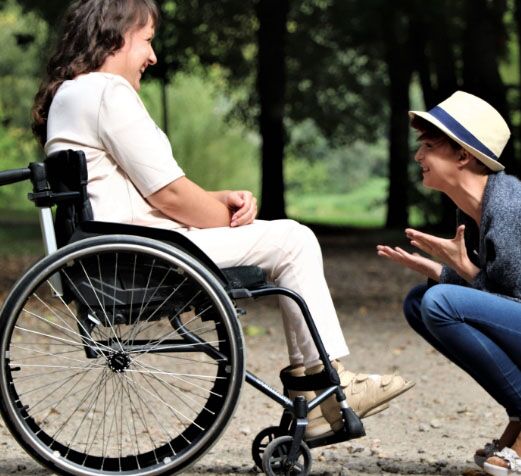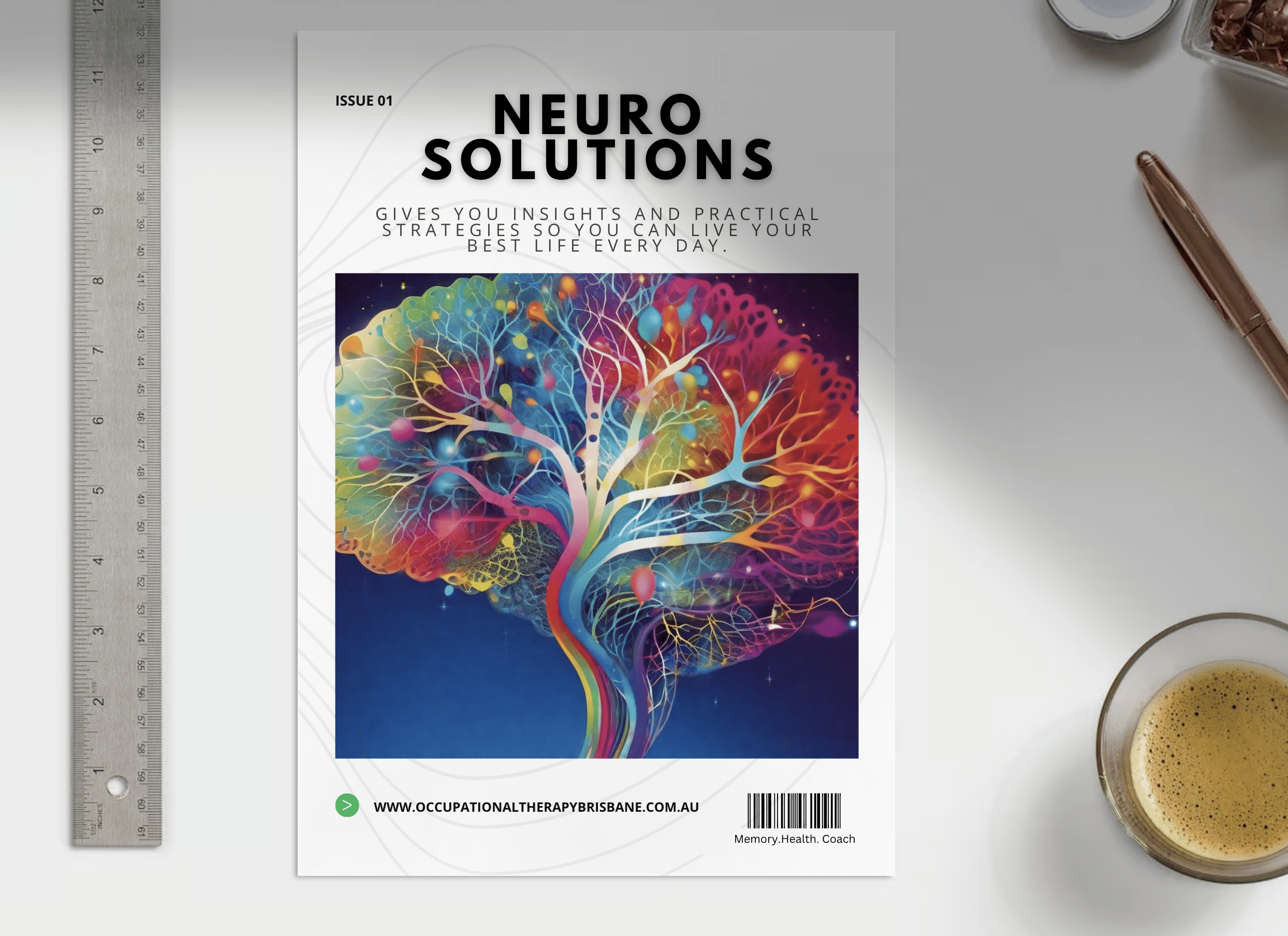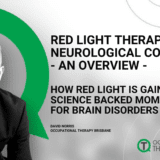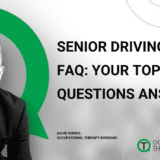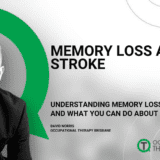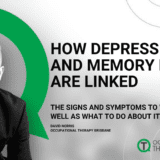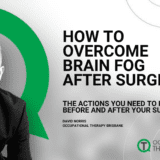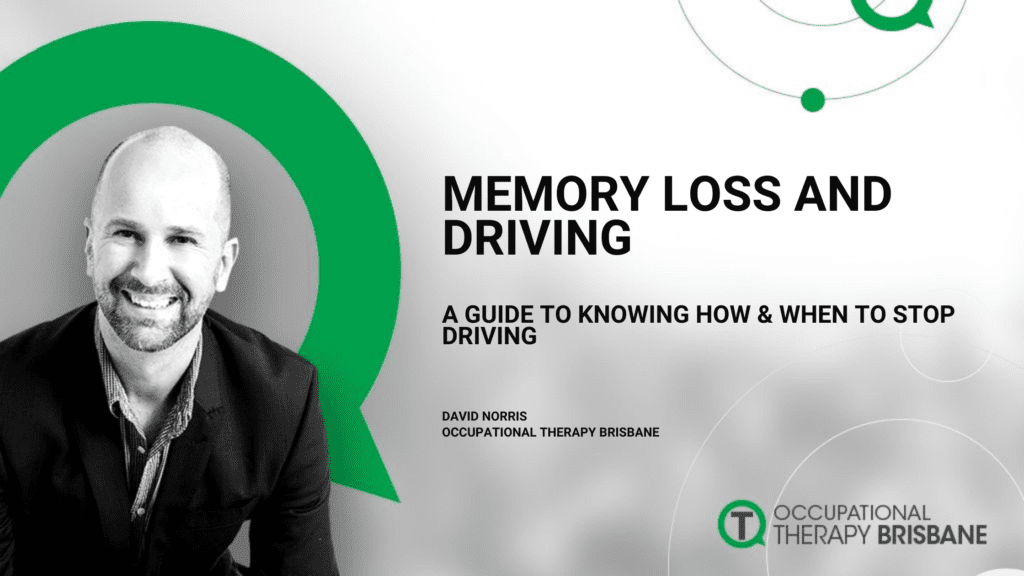
MEMORY LOSS AND DRIVING
Missed a traffic signal, speeding or too slow, disoriented in familiar places or a decline in overall driving confidence are possible warning signs of unsafe driving.
Whether you or a loved one has had a health change like a stroke, brain injury or a diagnosis of memory loss like dementia, it can impact a person’s safe driving skills.
In this article Occupational Therapist answers the common questions Memory loss and driving: Does it affect your driving ability and what can you do to maintain your independence?

FREE SELF ASSESSMENT: REVEALS 15 WARNING SIGNS DRIVING IS DIFFICULT
You see a change in a loved one’s brain health can contribute to cognitive skill decline in their thinking and memory. You are no doubt going to be first these changes in more complex tasks, like driving.
The cognitive testing at the Safe Driver Hub has allowed us to observe the impact of memory loss and driving. Cognitive decline can reduce a person’s skills to meet everyday driving situations and can be seen as:
- Loss of confidence with driving
- Making “risky or bad decisions” when driving
- Appearing flustered or overwhelmed with complex driving situations
- Missing or not attending traffic signals
- Challenged by busy intersections
- Cars and other vehicles “appear out of nowhere”
On the face of it you might say “I’ve been driving all my life, there is nothing wrong with my driving”
Sure, operating your car, the one you’ve likely driven for many years is very familiar to you. You know:
- where the controls are,
- the sense of space of the vehicle,
- how to adjust the settings of the car.
Memory and thinking changes can impact a person’s ability to safely meet the various traffic and road conditions. It’s being able to consistently meet these events that becomes undermined with cognitive function decline.
In our Safe Driver Hub, we’ve been assessing the impact of cognitive impairment on a person’s driving skills for many years and that’s why we’d like to share with you are the common questions raised about memory loss and driving.

FREE SELF ASSESSMENT: REVEALS 15 WARNING SIGNS DRIVING IS DIFFICULT
In this article you’ll learn
- Memory Loss Conditions: What Is Dementia
- Driving Loss & Memory
- How Memory Loss Conditions Like Dementia Affect Your Driving Ability
- Do I Have To Stop Driving Immediately If I am Diagnosed With Dementia
- What The Specialists Recommendations Are About Driving And Dementia
- Having An Independent Driving Evaluation
- What Is The Impact Of Dementia On Safe Driving
- Legislative Requirements For Older Drivers With Dementia
- When You Should Stop Driving

Memory Loss Conditions: What Is Dementia?
As we age, our chances of developing a serious memory or cognitive problem, like dementia, increase gradually over the years.
You see 1 in 10 people aged over 65 years in Australia live with dementia. That’s 485,000 people in 2022 living with severe memory loss. In QLD, over the next 30 years the number of people living with dementia is expected to increase by 345%.
Dementia is an umbrella term which relates to a group of diseases that share some common features. These common dementia symptoms includes:
- Progressive deterioration of short term memory as well as
- One or more other cognitive skills such as language and executive function, which interferes with
- A person’s ability to complete daily function. This no doubt threatens a person’s sense of independence. As a result, the issue of driving and memory loss is becoming increasingly important and a public safety concern.
There are numerous conditions which result in dementia with the most common cause Alzheimer’s (60%) and vascular dementia (20%) but there are many others.
While dementia assessments identify more commonly cognitive issues in older people, it isn’t considered a normal part of ageing.
People in their 40s and 50s can sometimes get dementia as well.

FREE SELF ASSESSMENT: REVEALS 15 WARNING SIGNS DRIVING IS DIFFICULT

Driving and Memory Loss
Driving is an important life skill to most adults in our culture. It represents independence, freedom and control.
For many of us driving enables us to get to and from work, do our shopping and helps us to keep in touch with family, friends and the community in general. For some, driving is an integral part of their jobs.
It’s important to bear in mind that “driving is a complicated task that requires a split-second combination of complex thought processes and manual skills.
To drive, a person needs to be able to make sense of and respond to everything they see, to ‘read the road’, to follow road signs, to anticipate and react quickly to the actions of other road users, to take appropriate action to avoid accidents and to remember where they are going.” (UK Alzheimer’s Society)
Are you concerned about your or a loved one’s memory loss and driving? If so, please call today 1300 783 200 to discuss your situation and see if an assessment at our memory health clinic may be of hel
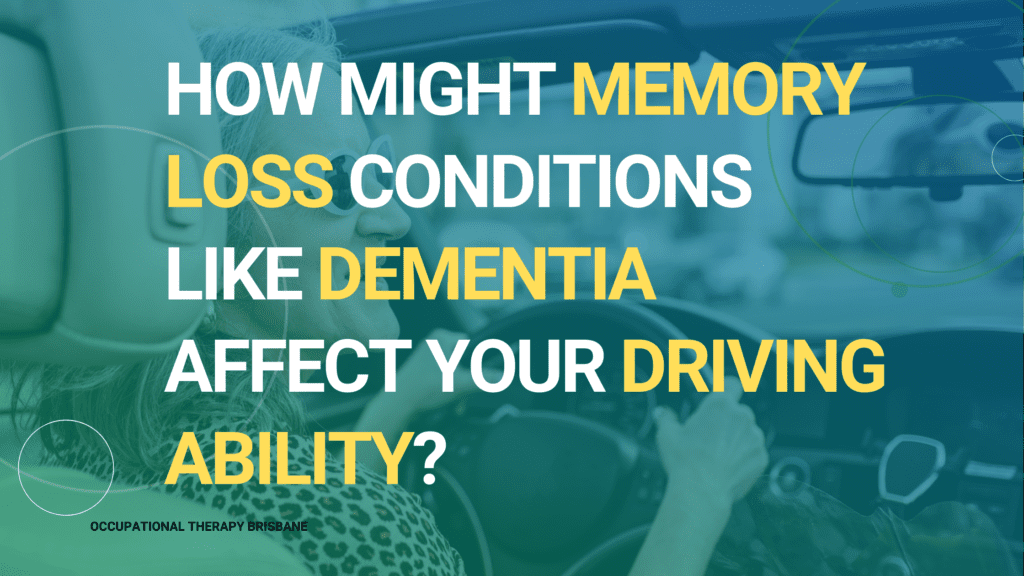
How Might Memory Loss Conditions Like Dementia Affect Your Driving Ability?
How dementia might affect one’s driving ability will vary from person to person and may also depend on the type of dementia that one has. However in general a dementia and driving ability assessment may show up as changes with:
- Perception – a dementia may affect a person’s ability to recognise or understand what they see.
- Attention – a person with dementia may have difficulty focusing on more than one thing at a time. They may be easily distracted. For example they may have difficulty driving and holding a conversation. They may also have difficulty reacting to traffic and pedestrian situations that occur.
- Memory lapses
- Judgement – a person with dementia may have impaired judgement. i.e. they might make the wrong decision in a situation.
- Vision and Perception
- Reaction Times and the ability to make quick decisions
- Judgment: Impulsiveness – a person with dementia may react to a situation without considering or realising the consequences of their actions.cognitive

IF I AM DIAGNOSED WITH DEMENTIA DO I HAVE TO STOP DRIVING IMMEDIATELY?
Driving and Early Stages or Mild Dementia
The answer is ‘maybe’.
A diagnosis of dementia does not automatically mean that you have to stop driving now, but almost certainly will mean that you have to plan for stopping driving some time in the future. The questions that you need to ask are:
- Is it safe for me to continue driving?
- Am I a risk to myself and/or others?
- Can I predictably meet the driving conditions on the road?
- Can any changes to my driving help me stay on the road?
It’s possible that your doctor or a member of your family may ask you to stop driving or to complete a cognitive assessment and driving assessment with a health professional .
If you’re unsure of your ability to drive safely then you should stop immediately.

What Are The Specialist Recommendations About Driving And Dementia?
The Australian and New Zealand Society for Geriatric Medicine released a position paper in 2009 that focused on driving and dementia. It states:
- Some people with mild dementia may drive safely
- It is not reasonable to suspend a patient’s licence based solely on a diagnosis of mild dementia
- A driving co-pilot is not a recognised safe practice for reducing safety risk in dementia
- An occupational therapy driving test is accepted as a ‘gold standard’ assessment
- Neuropsychological results generally do not sufficiently or consistently correlate with on-road driving performance
- Regular review (at least 6 monthly) of safe driving capacity is required in patients who retain a driving licence in early dementia
Dementia Australia States
“Every individual has the right to mobility. Driving as a means to this mobility should not be challenged if drivers have the functional ability to do so without risking the safety of their passengers, other road users and pedestrians, and themselves.”
In the end, a robust OT Driving Assessment is likely to be a key feature of a person’s life if they wish to drive.

Having An Independent Driving Evaluation
To date no objective measure has been comparable to a physical on road driving assessment. However, an on road OT assessment is expensive or if you chooses a public service, you can wait over 6 months for an assessment.
An In Room evaluation, this is where a person is not assessed in the car, allows the therapist to complete an older person driving assessment related memory, movement and thinking skills. It commonly includes
- Robust cognitive assessment
- Reaction time assessment
- Visual and perception assessment
- Speed of processing assessment
- Virtual road scenario assessment
This means a person can expect a standardised, sensitive and replicable assessment to detect and monitor changes over time and markedly more cost effective.
If you’re considering an assessment of your driving related memory and thinking skills please contact us directly on 1300 783 200 or via click the ” Get Connected” button below.

What Is The Impact of Dementia On Safe Driving?
There commonly two areas needed to be investigated and monitored when a person is driving with dementia.
First, the progressive nature of the condition requires ongoing assessment or vigilance in order to monitor safe driving skills. This includes evaluation of cognitive skills, reaction time, driving scenarios, hazard response reaction times for example. It’s clear that there are a range of reasons why people will continue to drive after a diagnosis:
- Being able to get to the shops, pharmacy, doctor, visiting friends,
Second, is being aware of one’s skills and playing and accommodating to this, commonly referred to insight. While most people will self retire from driving, a few researchers have observed that many will retire only after one or more crashes.
Several studies have compared crash risks of people with dementia versus healthy older controls. They observed a 7- 10 fold increase in odds ratio.
Legislative Requirements For Older Drivers With Dementia
According to the 2012 Australian guidelines for driving after dementia, an individual with dementia cannot hold an unconditional driver’s license.
It also states that all drivers in Australia who have a condition which could potentially affect their ability to drive must inform the driver licensing authority (DLA).
However many older drivers are not aware of this requirement.

WHEN SHOULD YOU STOP DRIVING?
What To Do If you Think Someone Is Unfit To Drive?
In consideration of “when”, there may be observations of a person’s skills at home and on the road.
Commonly a family member or caregiver express concern about a person’s performance;
- That appears unsafe
- They may feel at risk in the car
- They are concerned that a person can’t predictably meet the driving conditions on the road
Alternatively, your GP or other health professional may also make this recommendation.
A driving assessment may be needed to help support a transition and having a clear community transport plan means that a person can continue to do and access the activities and community which are important.
The Biggest Worry For Most People Is “How Will I Live Without My Car”
A frank, honest and sensitive conversation about driving may be needed to discuss and formulate a plan.
We’ve tailored a program to help address this called “Mobile For Life” as most pressing issue that people raise is “how am I going to do what I want after I stop driving?”
Sadly, depression can emerge when a person stops driving. That’s why we created the Mobile for Life program to help people overcome the common obstacles of when they stop driving. If you’re interested about how you can live and do after you stop driving, Click Here


